What to Do When Your Teen Pushes You Away
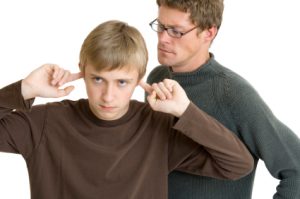 8 ways to respond when your teen wants space
8 ways to respond when your teen wants space
All parents reach that point when they hang their head in their hands and lament, “My kid hates me.” For most parents, this moment either happens for the first time or a lot more often when their child reaches adolescence. Adolescents and teens have a natural tendency to want to separate from their parents and seek psychological autonomy. No matter how great a parent you’ve been, at some point, your teenager will pull away from you. The good news is that this is totally natural.
Separating from their parents is part of a process of self-realization that helps kids determine who and how they’ll be as individuals and adults. In this stage, friends and peers become more important and parents seemingly less so. For parents, this can be a hard pill to swallow, but what we’ll find is that like so many parts of parenthood, this is NOT about us; it’s about our kids.
So much of how we treat our adolescents and teenagers has more to do with us than with them. We see ourselves in our kids, and they stir up a lot of old pain that we’ve long shelved in our memory. We project our own history onto their future and assume they’ll repeat our mistakes. We even tend to see our kids as a reflection on us and add extra pressure on them to do better than we did or to not slip up. As parents, we do our kids a disservice by failing to separate our experience from theirs. The more we can see them and respect them as autonomous individuals, the more we can be available for them in the unique ways that match their needs as opposed to ours.
Although it’s a real challenge when our kids, who still depend on us in many ways practically, are pushing back from us emotionally, the best thing we can do to balance this transition is to put ourselves in their shoes. We should always aim to respect their opinions, ideas and boundaries with the goal of understanding what they’re going through and being sensitive to their new, shifting needs. Here are some of the most essential ways we can continue to support our kids in this trying phase of our relationship:
1. Recognize that it is not about you – Teenagers can say some pretty hard things to hear. Though these statements can be extreme, there’s often some truth to them that can make them all the more painful. Our kids have spent their entire lives as our spectators. All that time we thought they were oblivious, ignoring or forgetting, they were actually noticing, observing and absorbing. The answer when they start to voice their opinions about us, or even lash out, isn’t to hate them or to hate ourselves. Although we should definitely interfere with any hurtful behavior, letting them know it’s unacceptable to be abusive to anyone, if we want our kids to deal with their feelings in healthier ways, we must be open to their feedback. That may mean hearing some unpleasant things about ourselves. It may mean taking them seriously when they say they no longer want us texting them 10 times a day or coming in and out of their room without knocking. In response, we should try not to be defensive and accept the ways we may hurt our kids even though that’s far from our intention.
Once our kid reaches adolescence, it’s easy to feel like we’ve switched roles, and they have the power. We may feel like we’re being mistreated or ruled by the strong willed, opinionated person who was once a helpless baby in our arms. We may even feel jealous of our kids and the fresh spark they have toward life. At this point, we may tend to feel victimized and indulge thoughts like, “Were we really that bad?” “Can’t she just forgive me?” “Why doesn’t he understand everything I’ve done for him?” However, it isn’t our kids’ job to take care of us and make us feel better. That’s our job.
Of course, we all want our kids to be compassionate, caring people, but we teach them that by being compassionate and caring ourselves and not by denying their natural, angry feelings that arise. There are plenty of ways to help kids learn that all their feelings are okay, but that nasty behaviors are not. We can offer them the space they need to feel what they feel and get through their feelings with strength and resilience. Many of these tools are taught in Dr. Daniel Siegel’s book, Brainstorm: The Power and Purpose of the Teenage Brain, a book meant for both parents and teenagers.
2. Don’t overstep boundaries or over control – It’s reasonable to worry about what kind of adults our kids will grow up to be, especially in that profound period when a child is transitioning to adulthood. We worry even more about their future, the kind of job, partner or degree they’ll have, because all of a sudden, that future is rapidly approaching. As a result, we may make a bunch of unrealistic rules that make our kids feel untrusted or intruded on, and we resist letting them learn for themselves. A lot of these rules and reactions may have more to do with what makes us feel comfortable than making our kids feel truly seen and safe. A teenager’s desire to rebel can often ignite our desire to control. However, over-attempts to control generally backfire in a big way.
When we start assuming our kids will make bad choices, we may implement restrictions that make them feel punished simply for coming into adulthood. When we label a lot of their natural, developmental behaviors as bad or unacceptable, we teach our kids to sneak around and hide from us. As Dr. Siegel wrote, “Adolescents who are absorbing negative messages about who they are and what is expected of them may sink to that level instead of realizing their true potential.”
It’s hard advice for many parents to take, but sometimes we have to let kids be. We can still keep them safe by noticing their mood and familiarizing ourselves with their activities, friends and how they’re doing in school. While we shouldn’t make too many rules, we should stand by the ones we do make. By creating natural, realistic boundaries, we can keep them feeling secure, while offering them the space and respect they need to develop.
3. Be there when they reach out – Giving our kids space does not mean rejecting them altogether. Adolescents and teens still need a lot of guidance and support, and they should always know that we’re there to talk to them and help them work though the many hurdles that arise. This means being open to whatever they want to discuss. We should never punish our kids for the times they’ve rejected our help and should always respond when they come toward us. We can be present for them in a calm, consistent way that lets them know we are 100 percent there if ever they’re in trouble, want our input or desire our help. They may not need us as much as they used to or for the same reasons, but that doesn’t make our dedication or love any less.
4. Make sure they have other caring and trustworthy adults they can turn to – As parents, we often want to be “the one” our kids go to for any problem or issue. We tend to take our kids’ rejection as a personal slight or an attack on our ability to parent. But again, this isn’t about us. When our kids feel awkward, ambivalent or resistant in relation to us, it is our responsibility to make sure they have other supportive figures in their lives to whom they can turn. The presence of a mentor – be it a teacher, counselor, aunt, uncle, grandparent, step-parent or family friend – should not be seen as a threat to us as parents but as a gift in our children’s lives. Think of it as yet another force helping them navigate the tricky and tumultuous waters that take them into adulthood. Allowing them to have that relationship is an example of us doing our job as caring, attuned parents.
5. Help them develop a sense of meaning and purpose – If ever we feel worried about our kids’ choices, the best thing we can do is create an environment where they can focus and flourish. For example, we can help them realize a project or shared venture with their peers. We can support a passion that lights them up, be it guitar, dancing, digital art, sailing or skateboarding. Our involvement as parents may just be as supportive sideline figures, facilitating the time and resources for our kid to take on this new adventure, set their own goals and enjoy their own achievements. It’s important to let our kids own this experience themselves and not over-involve ourselves in ways that may make them feel pushed away, overlooked or pressured.
6. Be the change you want to see in your child – I can’t emphasize enough how much our own behavior affects that of our children. Recent studies have shown that parents’ (particularly mothers’) happiness is strongly linked to their kids’ happiness, even when a child has grown up, moved out and gotten into a relationship. If we’re worried our kids won’t be responsible, hold a job or find a nice relationship, the biggest thing we can do is demonstrate responsibility in our own actions, behave in ways we respect and focus on having our own healthy relationships. If our child is rejecting us, we should still be warm, kind, patient and present, which facilitates an opportunity for them to feel kindly toward us and maintain a healthier, more mature relationship over time.
7. Be open-minded – We may not feel all that comfortable with the idea of our teenager talking about dating and crushes. We may cringe at the outfits they want to wear or the parties they’re now begging to attend. However, we have to accept that these interests are a part of growing up. Making a bunch of rules they’re bound to break or that they’ll completely rebel against the minute they move out is probably not the answer. Neither is denying or ignoring the whole business and wishing it would all just go away. It’s better to be open with our children about their experiences as well as our own. We have to find a way to push past our own discomfort and leave the pathways of communication open for topics they bring to the table. We can inform them of what they need to know and help them feel the value and respect they should have for themselves as they enter an adult world. We do this by valuing and respecting them as individuals in their current lives.
The more our kids feel like what they think and feel will be accepted by us, the better. Even if we ask that they follow certain rules, our kids should never be made to feel bad, disappointing or dirty for their natural curiosities and evolving interests. The more they can accept feelings in themselves, the more comfortable and confident they’ll feel to make responsible, self-caring choices.
8. Create a shared experience – Ideally, from the time our children are born, raising them becomes a series of nurturing weening experiences, in which we’re sensitively helping them evolve into strong, self-sufficient adults. Through these inevitable developmental stages, we can expect our relationship with our kids to change and certain phases to come and go. One of the best ways to facilitate developing a more equal adult relationship with our children as they mature is to find a mutual interest we both want to pursue or project that we can engage in together. These activities can allow us to get to know each other in new ways and perhaps develop an appreciation of each other as people.
All kids need more and more independence as they grow older. At its best, this evolution can be yet another rich, rewarding lesson in what it means to love a growing human over time. At its worst, it can feel like we’re repeatedly losing something or being forced to relive all the big and little traumas of our own childhood. That is why we should always strive to remember that the very best thing we can do for our kids is work on ourselves, to divorce their needs and experiences from our own and accept them for who they are as separate and unique individuals.

In this Webinar: As parents, we pay attention to our children’s physical wellness, never missing a symptom or a check-up. However, how attuned…

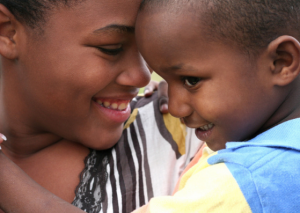

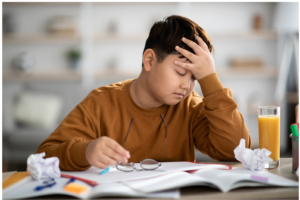

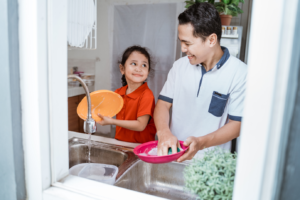
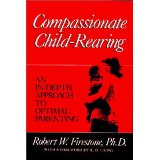
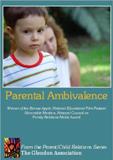


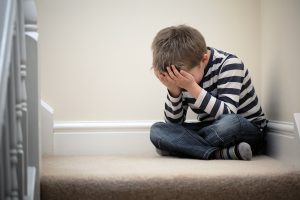

Wonderful!
I’ve definitely had challenges with my kids, but something that has worked well for me is to take the time when they make a mistake and use it as a learning opportunity.
I went to a site called www.preparemykid.com and they have a video that talks about how to teach kids life skills…
In essence, I find out what mistake they’ve made; I often share a story about how I struggled with it; I relate why it’s important to something my kids find important; and then I let my kids talk about how they would do something different and we have a discussion.
I’ve learned more about my two boys in the last 8 months than I thought possible!
What if ur 18 yr old is disregarding house rules (vaping, smoking pot) despite clearly stating that it is not allowed on our property . To me, this is a health and safety risk. We have taken away the car because we feel it is unsafe to for him to drive if under the influence. I also took away anything in his room where he can hide pot. The vaping I am less strict abt right now as it is legal. I don’t want him going down wrong path of drugs. It terrifies me.
This is hard! Maybe you need to approach this as it’s not just a house rule that you made but smoking weed is illegal and you don’t want him to abide by the law. That takes the heat off of you and may help him realize that it is a bigger issue. Talk to him about why he wants to smoke weed and remind him that you have his best interest at heart as his mom/dad. If he claims to be clean then you can buy drug test for THC at local pharmacy for relatively cheap and I would buy an extra and tell him he will have random drug test and if it comes up positive then you are giving him consequences- no phone/ no car keys and he is going to counseling. I hope this helps! God Bless!
Oh no, random drug testing does not work. Trust me, I’ve worked in addiction treatment centers. There are ways to get a negative drug test result even if you’re positive that make them useless. And the delayed punishment of loss of privileges cannot compete with the instant gratification of smoking pot; instant gratification will win in this case. Furthermore, the focus becomes on how to fight/flight from/disconnect from mom & dad vs. the real cause of smoking pot (anxiety, trauma, acquiring skills, grief, etc.)
May I suggest you work with an adolescent addiction therapist that can offer advice tailored to your child, your family and you. Plus, I’d attend Al-Anon meeting for parents and learn from their wisdom & develop a social circle of support of people who have gone through what you’re going through.
My Son just turned 16 & decided he wanted to move out & in with his Grandparents. This has left me devastated & unsure how to handle the situation. I am trying my hardest not to show the hurt when i see him that 1 day a week. I am completely lost & feel like Someone has died. I feel like i am going through the grieving process. Can anyone advise on how to deal with this
I wish I could but I’m going through the same thing and yes, I’m dying as well. I have been reading a lot on co dependence and that all this is natural but boy does it hurt to the very core. I pray they both return and make good decisions while asserting their independence . Stay strong!
Awesome article, strike to the point, thanks for sharing
Hello, at least you know that he is with the grandparents, I think that when that happens we have to grieve. My son left at 17, and when he called me he was in his way to San Diego . I thought I was never going to come back I was wrong he was doing drugs and when he didn’t have place to live he came back I helped him for a while finally he left and he is ok. You go on with your life is not easy but we have to be strong
why is the mother’s happiness a greater predictor of the child’s happiness? i guess the article is written by a woman, but it feels strange that the happiness of the father would have no impact on the child growing up. that just does not compute.
a stern distant or depressed father will have a profound impact on a child later in life, surely?
Great article. Thanks so much. Darren (father of a confusing, 16 year old daughter)
The article did not say the father would have-no impact. It said “parents”, but particularly the mother. Likely because the mother is usually more involved with children than fathers. Not always, but often.
This article puts a huge amount of pressure and responsiblity on the parent to always be there, to not react to disrespect and wrong or dangerous behavior. If teens are to learn how to function in relationships they need to see consequences to their actions, I am not a door mat which is basically what you are if you follow the advice. If a 18 year old claims to be an adult and leaves or makes a bunch of stupid choices and rejects their parents, there needs to be consequences. Telling your parents you hate them, disrespecting them, rejecting and pushing people away, etc would result in conseqneces in all other relationships. Every human in relationships have expectations of some kind of reciprocity, that is normal and good. I do expect someone I invested all my time and energy into for 15+ years to maintain decency, respect, and show some caring/empathy towards me – the parent. I am not a punching bag or a wallet. When do we start to hold people accountable for how they relate to others? I think this article puts unrealistic expectations on parents.
I totally agree with Chantel. I’m a father of two teenage children and my 17 year old daughter has tried our patients to the extreme limits. My wife and I were attending counselling alone as she refused to come. They told us all the same crap that’s in this article. We did it all, because we loved our daughter dearly, but after months and months and months of this onslaught, I’m ready to just say goodbye. It really breaks my heart. And you know what caused it? She fell in with the wrong friend group at school and her mind got poisoned. I saw it happen with my own eyes.
Thank you Chantelle, I felt exactly the same reading this.
Hello John,
First of all, I am sorry about what happened to your daughter and I understand why you may feel that the article puts so much pressure on parents. I also feel somewhat defiant reading it. I guess another way of looking at it is that at some point, hopefully, your daughter will realize that her group of friends is not the best choice. When she does come to this conclusion, most likely she will come back to you. At that point be ready to be there for her. She may be open about what led her to be associated with a wrong group of friends and she will rely on your support. In the meantime, there isn’t much you can do if you have already tried so much. it’s so frustrating. Make sure that she knows that disrespect is not tolerated but the door is always open for her when she is ready to talk in a respectful way. You don’t have to be a doormat to state that. My best wishes to you and hopes for your family.
I’m a single mother. My 16 year old son did this too. He was having trouble at school because he was very shy so I took him to a therapist. She convinced him that I was a bad mother and that I was to blame for all his problems (because I’m shy too, I have Aspergers so I’m very socially awkward and don’t have a lot of friends so she thought I didn’t give my son the right social environment or the right examples of social interaction while he was growing up) so he moved out and moved in with his grandparents too, and now he only tolerates seeing me once a week at most. His shyness and difficulty making friends is the bane of his life and he still blames me for “making” him shy and not teaching him how to make friends and therefore, for everything that’s wrong in his life (because not being able to make friends is, for him, the worst thing about his life).
I saw a therapist and she advised me that the best thing I could do is to do things that I like and be successful professionally and have great relationships with the few friends that I have. And that when my son saw that I was happy doing things I enjoyed doing and having the successful professional life that he wants to have and having a fulfilling social life he would start to see me as a model, an example and an inspiration and he would want to come back to me.
So I’ve been doing that but so far my son hasn’t changed his attitude or opinion about me at all. He just says things like, well so hoo-ha you’ve got great friends that doesn’t mean I’LL have great friends. And so hoo-ha so you’re doing great at work but that doesn’t mean I’LL ever do great at work I don’t like your job and I would never want your job.
I agree with Chantelle. I am hopeful the the permissive, responsibility free ideology at the root of psychology today will evolve in the coming years. There is huge difference in a teenager naturally spreading their wings vs. having to walk on eggshells around disrespectful and hurtful teenagers (including the self harm movement). This article offers no practical parent solutions for those of us that have real true alienation issues due to social media (or media in general), junk psychology and increasingly new permissive and boundless social norms.
Totally agree with Chantel and Brigitte. Felt the same reading the article.
I have a 14 years old daughter. We used to be very close but not any more. I often feel scared around her as I do not know when she will get annoyed with me. She will not sit next to me or be in a room alone with me. But she is very close to her dad. I feel I am shut out of their world. I am the 3rd person in the house who is not welcomed. I felt so hurtful and have tried to talk to both my daughter and my husband. But I do not see anything is going to change, only I feel it is more awkward for my existence. I am even thinking of leaving them now. I just do not feel it is right why I suddenly losing my daughter for no fault of mine. I feel hopeless and wordless.
Lin, I know exactly how you feel. My 12yo daughter was the love of my life, and she now seems to love being with her dad but not me. I feel like I am under an ocean of sadness beyond anything I ever imagined. She is my only child – if I were younger I would have more because I feel utterly alone. All this is to say, I am sorry I don’t have a solution for you, but at least know you are not alone. Sobbing mothers are everywhere. She has been gone 2 weeks and got home tonight and barely looked at me, didn’t even say goodnight. Where is my little girl.
I agree with Chantel. 100%
What do you do if your 16 yrs old daughter who disrespecting you and now living with her grandmother who hate you and only brainwashing your daughter against you?
She doesn’t want come back home even I tried many times. She don’t want listen me, and I’m only thinking for her goodness and safeness all the time.
My two teenagers (boy/girl) are completely distant from me after a fight that their father started in front of my son. I asked him to please not involve the kids in the fight and he said, “It’s GOOD for him to hear this!” I immediately disengaged and now neither my son or daughter has spoken to me. It has been 3 days now. Their father is now their best friend, which is great. They need to have bonding time. What I don’t like is that their father will not foster a relationship between them and myself. It’s almost like he’s getting enjoyment out of seeing them reject me. I have asked my son to sit with me and talk and he has refused. I asked him why he was upset and he wouldn’t even look at me. I let him know that when he’s ready to talk, I will be here. I told him that forever is a long time to be mad at someone and it’s not healthy to keep those emotions bottled up. Time will tell how he feels about me. I agree that this article does put a lot of responsibility on the parent. I definitely wasn’t parented this way. But, I think having the respect for our kids and openness with them will pay us back in spades. The teenage brain isn’t fully developed and they truly can’t make the same sort of decisions that an adult would make. Things like predicting the future or having consequences to their actions are delayed. I remember my teenage years well and always said I would understand my kids. But I also made a lot of bad choices that I thought in the moment weren’t so bad. I try to have empathy and understanding as to why my kids are upset with me. Obviously my marriage is a huge reason but I still can’t figure out why they want nothing to do with me when I have done everything for them. It’s sad.
My 16 year old son is my only child and the love of my life. Up until the pandemic started we were close, had long conversations about all sorts of things and did many things together. About 3 months into the pandemic with no in person school, no sports and no travel he got seriously into online competitive gaming. He then practically stopped talking to me, stopped watching movies with me, stopped wanting to eat dinner with me, etc. I repeatedly tried to speak with him but he pushes me away and is disrespectful and insulting. I am completely heartbroken and feel hopeless and depressed. I did not see this coming because we had such a great relationship, and I am painfully mourning the loss.
This article is a joke! Since when is an adolescent teen in control of the adult family dynamics?! There’s balance, and teaching your kids respect and empathy. Not looking like a straight up pushover. Experience and maturity is the delight of adulthood. Trying to bash that is absurd/
Oh look.
Another article about how parents should break their backs and souls and expect nothing in return.
Parents are people too and have as much right to being loved, cared and nurtured as their children do.
People like you need to stop treating parents as an automated, emotionless and unndeserving husk whose only purpose is take all forms of abuse in the sake of the idea “THEY’RE JUST KIDS/TEENS/ETC”.
You want to really help?
Talk to the parents who don’t lap up your generic “parents do better” idealogy and tell you how they really feel.
So tired of these articles.
I don’t think she meant for parents to be pushovers. I think this article covers TV’s Beaver Cleaver / The Middle type of teenagers, not troubled ones that need more help. Nor ones where parental sabotage is happening. She said not to let them be disrespectful or hurtful. She said to let them break away and in the mean time parents should live their lives as happily as they can but to be there for their teens. I took this to mean the teen still is expected to do chores and eat meals and attend family gatherings. But let them be holed up in their rooms and with friends more than they are with you. And hope they come back to you when it’s all over.
to be fair to the author, this is not an article designed to help you if you are suffering estrangement from a child. if you are experiencing estrangement, you need to seek advice specific to that issue. dr joshua coleman’s books are excellent.
i think dr firestone is talking about a situation that assails most family homes with teenagers. the child is exhibiting certain behaviours but is essentially still living with the parent’s home. i think her advice is pretty standard advice but how you apply it to your particular situation is the hard part. we all have to figure how best to handle the unique circumstances and personalities we are dealing with.
i would say as someone who has a lot of experience with estrangement, you have control of only one thing – how you choose to respond to the situation. so choose well.
best of luck to everyone here. i truly feel for you all. i have been there. stay strong, and live your life fully. don’t let despair waste the last remaining days and years you have.
Thank thin so much for this! Perfect timing
I like it but my step mum is harsh to me.
Read more resources on attachment and teenagers
Agreed
It truly is like a loss, isn’t it? And no one ever talks about it! No one tells you!!
I too can relate my 15yr old daughter has decided she wants to stay with her dad after pretty much being by my side the last 15 yrs! I have felt like I have been grieving the death of my little girl as I know that girl us never coming back. Made all the more real by her want to be known as he/they and literally my little girl has been gone for a long time. It’s soul destroying I miss her and the love she had for me so much I thought our bond was unbreakable.
I 100% know how you feel.